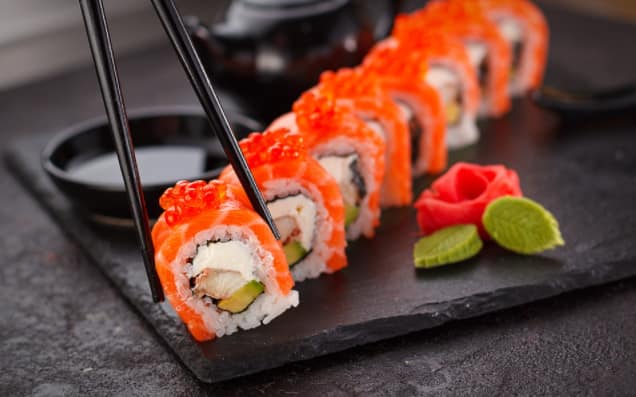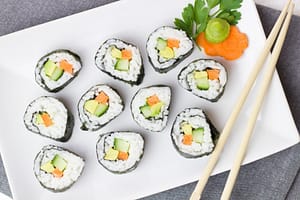The nutritional advantages of sushi are a topic of great debate and headaches for most sushi fans. Also, it is something that amuses people who want to incorporate sushi into their daily diet rather than a food source to improve their well-being or perhaps counteract the negative effects of a standard Western diet. This is usually high in polyunsaturated fats (trans and saturated fats), red meat, processed foods, and carbohydrates. At this point, soy sauce replacement plays an essential role in healthy sushi.
However, is sushi a much better option, and is it beneficial to you personally? Break them down and strive to know if they are right for you or not. Let’s start with the most obvious and noteworthy ingredient in this topic. The following are several types of sushi and their importance for your health.

Sushi Rice
Rice is a reliable source of protein (1 cup produces 25% of RDA) and carbohydrates and digests gradually, delivering its energy constantly. It’s also fermented (making it a great choice for allergy sufferers), contains very little saturated fat, is cholesterol and sodium-free and is rich in thiamine (vitamin B1). This may explain in part why people in Japan, where rice is consumed at almost every meal, have an obesity rate of only 3.2%, which is about 10 times less than in the US.
Rice Vinegar

All vinegar, in general, has been practiced in virtually every state on the world for things ranging from flavoring and preserving rice, to a skin cleanser or its use in cancer prevention for its anti-cancer properties. Rice vinegar contains 20 different forms of amino acids, 9 of which are essential, as they cannot be produced by different substances in the body.
Nori
Nori is very rich in vitamins and minerals. Particularly iodine, but also A, B1, B2, B6, niacin, and C. Moreover, compared to soil plants, algae has 10 to 20 times more very important vitamins. It is also a wonderful source of glutamic acid, an amino acid, and a neurotransmitter essential for knowledge and remembrance.
Health Benefits of Sushi Rice, Rice Vinegar, and Nori
Promotes the immune system, decreases cholesterol, boosts the body’s capability to absorb nutrients, decreases blood glucose levels, annihilates bacteria on contacts such as salmonella and streptococcus, stores food, decreases blood pressure, supports indigestion, promotes clear up urinary tract infections, lessens high blood sugar, support in the relief of pain and indications from sunburn, jellyfish wounds, bug bites, and headaches, accommodates to compensate free radicals which harm cells that induce degeneration and aging, decreases cholesterol development by counterbalancing some of the dangerous oxidized LDL cholesterol

